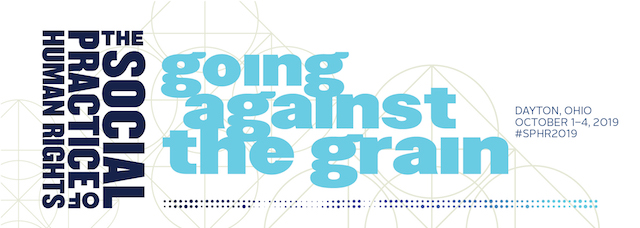Paper/Proposal Title
“Water Is a Human Right”: Exploring the Paradox of Framing Water as a Human Right in a Hostile Political Climate
Location
Innovations in Economic and Social Rights
Start Date
10-3-2019 9:00 AM
End Date
10-3-2019 10:30 AM
Keywords
Human Rights, Water, Economic Justice, Socio-Economic Rights
Abstract
Many communities across the United States experience challenges in accessing clean and affordable water. In response, civil society and grassroots organizations are using a human rights framework to advocate for safe and affordable services for all. This is a curious trend, given that the United States is a country in which human rights, specifically socio-economic rights, are not recognized as relevant for domestic policy and even met with hostility. This study explores this tension: why do civil society actors, grassroots organizers, and national level advocates in the United States use a human rights framework to advocate for access to clean and affordable water in a country that is so hostile towards domestic human rights and socio-economic rights? How are they utilizing this framework to address water contamination, lack of access to and disconnection of services? And what have been the successes and/or shortcomings thus far?
The study examines advocacy in California, Michigan, and the Appalachian Mountains based on personal interviews with local activists. The study suggests that the human rights framework can be empowering for residents in affected communities. Moreover, while “human rights” can be a divisive phrase, the basic ideology of rights seems to be universally accepted. Finally, advocates perceive human rights as an alternative international framework, which is a step removed from their local and national governments which they distrust. Understanding this framing, the strategies behind it, and the obstacles advocates are facing provides insights for broader efforts to advance human rights and social justice advocacy in the United States.
Author/Speaker Biographical Statement(s)
Sabrina Kozikis is a recent graduate from Columbia University's M.A. in Human Rights Studies program. Her area of expertise is the human right to water in the United States, with research focusing on the paradox created between the utilization of human rights frameworks by civil society and grassroots organizations and the country's dismissive and discouraging discourse surrounding domestic socio-economic human rights.
Included in
Civic and Community Engagement Commons, Human Rights Law Commons, Other Social and Behavioral Sciences Commons, Water Law Commons
“Water Is a Human Right”: Exploring the Paradox of Framing Water as a Human Right in a Hostile Political Climate
Innovations in Economic and Social Rights
Many communities across the United States experience challenges in accessing clean and affordable water. In response, civil society and grassroots organizations are using a human rights framework to advocate for safe and affordable services for all. This is a curious trend, given that the United States is a country in which human rights, specifically socio-economic rights, are not recognized as relevant for domestic policy and even met with hostility. This study explores this tension: why do civil society actors, grassroots organizers, and national level advocates in the United States use a human rights framework to advocate for access to clean and affordable water in a country that is so hostile towards domestic human rights and socio-economic rights? How are they utilizing this framework to address water contamination, lack of access to and disconnection of services? And what have been the successes and/or shortcomings thus far?
The study examines advocacy in California, Michigan, and the Appalachian Mountains based on personal interviews with local activists. The study suggests that the human rights framework can be empowering for residents in affected communities. Moreover, while “human rights” can be a divisive phrase, the basic ideology of rights seems to be universally accepted. Finally, advocates perceive human rights as an alternative international framework, which is a step removed from their local and national governments which they distrust. Understanding this framing, the strategies behind it, and the obstacles advocates are facing provides insights for broader efforts to advance human rights and social justice advocacy in the United States.



